Effective time management for students revolves around balancing academic commitments, school/college life, and personal free time. By organizing days effectively, one can eliminate stress and enhance their productivity. While general time management Tips for students includes adequate sleep, creating schedules, and prioritizing tasks is crucial, a more strategic approach is needed to optimize the limited time available to students.
In this article, we crafted a list of 10 best time management tips for students of all ages and lets see them in detail.
What is time management?
Time management tips for students is the practice of effectively utilizing and organizing one’s time. It involves making conscious decisions about how time is allocated to various tasks and activities, ultimately leading to increased productivity and a sense of having more time available. Time management tips for students is a skill that can be learned and improved upon through consistent practice.
Why is time management important for students?
Developing strong time management tips for Students is essential for students as it enables them to prioritize tasks, complete assignments on time, and plan effectively. With improved time management, students can optimize their schedules, use their time better, and enhance their learning experience.
Key benefits of effective time management for students:
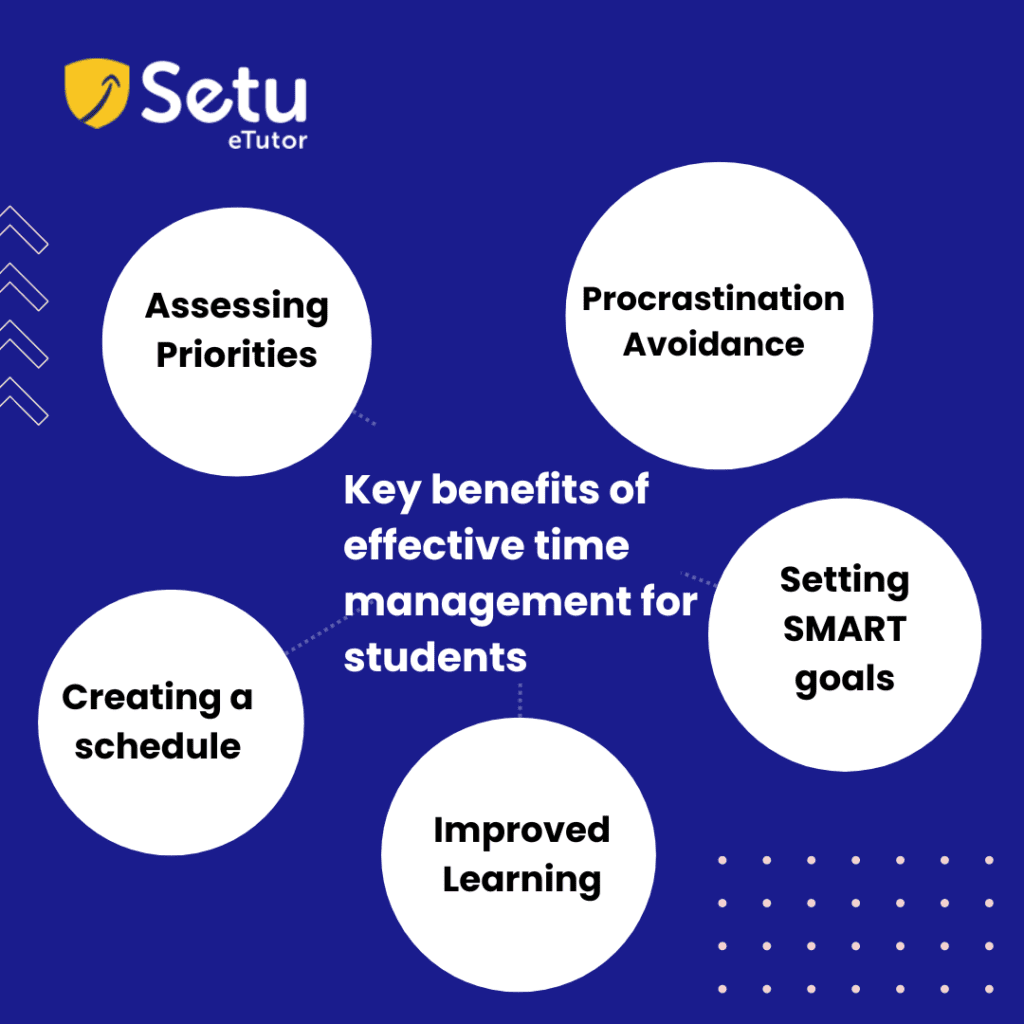
Assessing Priorities: Time management helps students identify important tasks and prioritize them accordingly. They can allocate sufficient time for projects, assignments, and study sessions, ensuring crucial tasks receive the attention they deserve.
Creating a schedule: Students can become more organized by managing their time well. They can create schedules, set deadlines, and maintain a structured approach to their academic and personal commitments. This organization reduces stress and helps them stay on top of their responsibilities.
Setting SMART goals: When students effectively manage their time and complete tasks as planned, it boosts their confidence. They feel a sense of accomplishment, motivating them to tackle new challenges with enthusiasm and self-assurance.
Improved Learning: Effective time management tips for students allows to allocate dedicated study time for each subject, ensuring they have enough time to understand and absorb the material. They can engage in active learning techniques, such as summarizing, reviewing, and practicing retrieval, leading to better retention and understanding of the content.
Procrastination Avoidance: One of the biggest pitfalls for students is procrastination, which can lead to stress, anxiety, and subpar performance. Time management strategies help students overcome procrastination by breaking tasks into smaller, manageable chunks and setting realistic deadlines. It reduces the temptation to put off tasks until the last minute.
For high school students, mastering time management skills is crucial due to the increasing academic workload and extracurricular commitments. It helps them stay organized, reduce stress, and balance their academic and personal lives.
So how can you teach your kid to manage their time better?
Check out these time-management tips to see how your kid can start accomplishing more productivity.
10 Best Time Management Tips for Students:
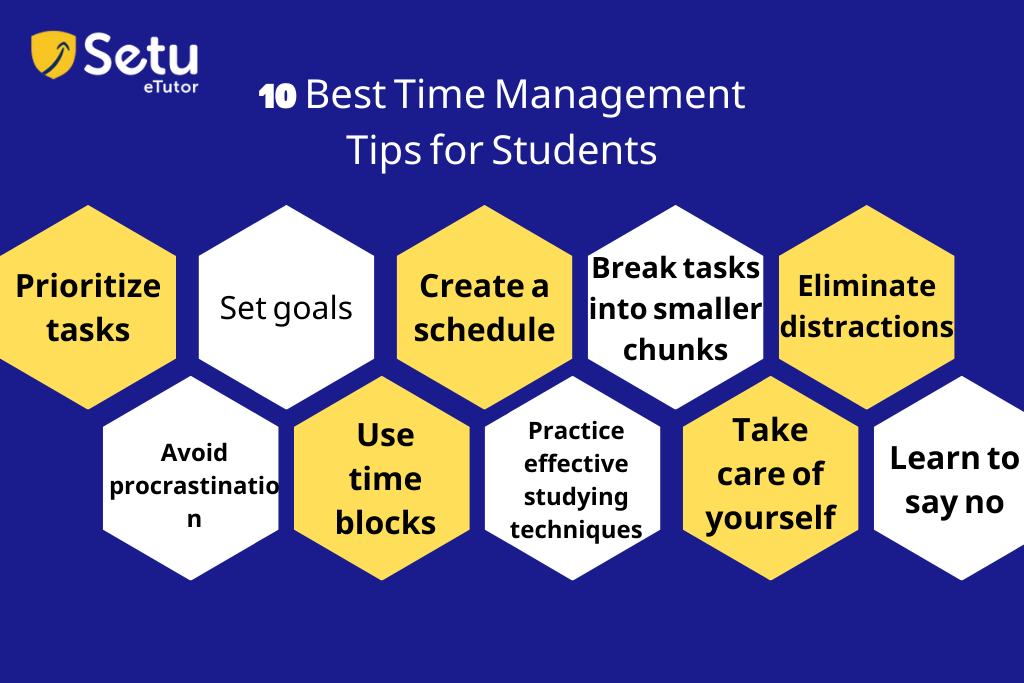
Effective time management tips for students is crucial for students to succeed while maintaining a healthy life balance. Here are ten helpful time management tips for students:
Prioritize tasks: Make a to-do list and prioritize your tasks based on their importance and deadlines. Focus on completing high-priority items first.
Set goals: Set clear and specific goals for what you want to achieve each day, week, or semester. It helps you stay focused and motivated.
Create a schedule: Develop a daily or weekly schedule that allocates time for studying, attending classes, extracurricular activities, and personal commitments. Stick to the schedule as much as possible.
Our AI-assisted platform SETU, informs the students about their daily and weekly schedules, assignments on prerequisite topics & practice tests that need to be done.
Break tasks into smaller chunks: Large assignments or projects can be overwhelming. Break them into smaller, manageable tasks to make them approachable and less stressful.
Avoid procrastination: Procrastination leads to unnecessary stress and poor time management. Try to tackle tasks promptly rather than putting them off until the last minute.
Eliminate distractions: Minimize distractions such as social media, mobile notifications, and excessive noise when studying or working on assignments. Find a quiet and focused environment.
Use time blocks: Allocate specific time blocks for different activities or subjects. For example, study for 60 minutes and then take a short break before moving on to the next task.
Practice effective studying techniques: Use active learning strategies like summarizing, self-quizzing, and teaching others. It helps improve retention and reduces the time needed for studying.
Take care of yourself: Maintain a healthy lifestyle by getting enough sleep, eating nutritious meals, and engaging in regular physical activity. Taking care of your well-being enhances productivity.
Learn to say no: Setting boundaries and prioritizing your commitments is important. If you’re overloaded with tasks, learn to avoid additional responsibilities that may hinder your time management.
Remember, time management is a skill that requires practice and consistency. Experiment with different strategies to find what works best for you, and be flexible in adjusting your approach as needed.
How does SETU help in time management for students?
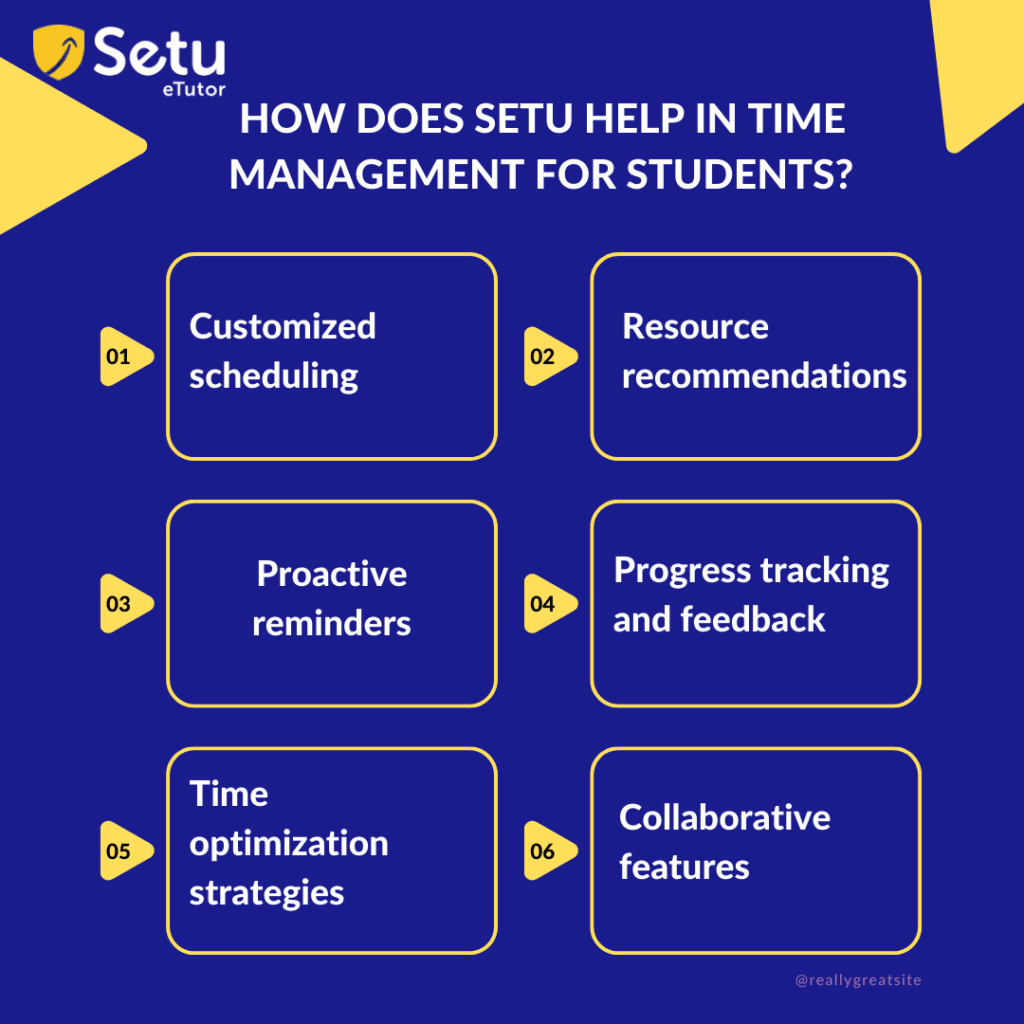
SETU is already aligned with the National Education Policy (NEP) 2020 and is a National Curriculum Framework. It can offer even more comprehensive assistance in time management. As a personal assistant, SETU can guide students in organizing their tasks and activities at the right time. Some additional ways in which SETU, as a personal assistant, can support students in time management include:
- Customized scheduling: SETU can analyze the student’s academic schedule, extracurricular commitments, and personal preferences to create a customized schedule. It can help students allocate time slots for studying, attending classes, participating in activities, and pursuing personal interests.
- Resource recommendations: Based on the student’s academic goals and interests, SETU can recommend relevant study materials, online resources, and educational platforms that can assist in effective time management. These recommendations can help students optimize their learning process.
- Proactive reminders: SETU can send proactive reminders to students about important deadlines, upcoming exams, and events. These reminders ensure that students stay on top of their responsibilities and take timely action.
- Progress tracking and feedback: SETU can track and analyze the student’s progress in various subjects, projects, or assignments. It can provide feedback on their performance, identify areas for improvement, and suggest strategies for better time management based on their individual needs.
- Time optimization strategies: SETU can offer specific strategies and techniques for optimizing study sessions, managing time between subjects, and maintaining a healthy work-life balance. These strategies may include tips on effective note-taking, goal setting, and minimizing distractions.
- Collaborative features: SETU can facilitate collaboration among students, allowing them to coordinate group projects, study sessions, or extracurricular activities more efficiently. It fosters teamwork and helps students manage their time effectively in groups.
Overall, SETU provides holistic support to students in managing their time, maximizing their productivity, and achieving their academic goals.
Conclusion:
Implementing the above mentioned 10 effective time management tips for students strategies can create a sense of liberation and enable students to accomplish more in their day.
Students can increase their productivity and efficiency by prioritizing tasks, setting goals, and following a schedule. It, in turn, frees up time for activities they enjoy and helps maintain a healthy work-life balance.
It’s important to remember that time management is a skill that requires practice and adjustment, so finding a personalized approach that works best for each individual is key.
If you find any other best tips for time management, please mention them in the comments section. We are delighted to include them in this blog. Moreover, please get in touch with us to receive updates regarding the best practices for managing time effectively.

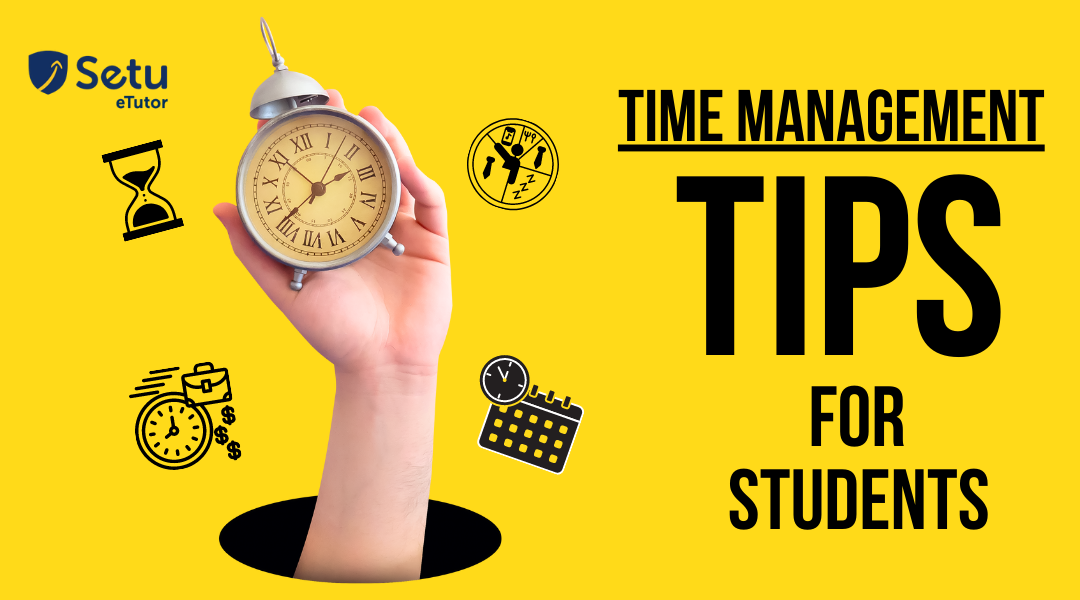





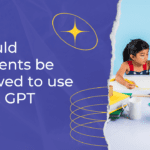

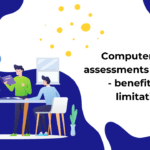

Leave a reply